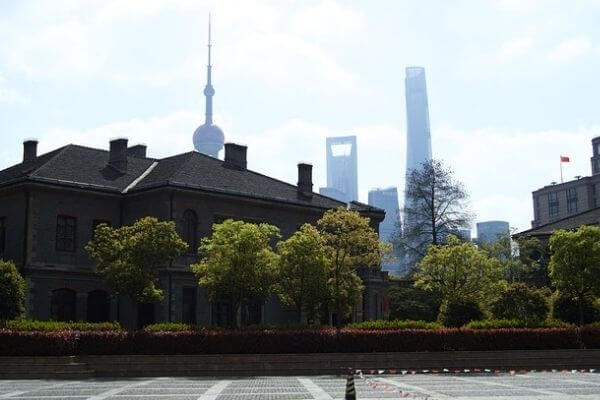
Judge Shen Hongyu (沈红雨) of China's Supreme People's Court (SPC) talked about the SPC's response to the COVID-19 pandemic at a conference on 7 Nov. 2020, and introduced the online cross-border dispute resolution mechanism in the post-pandemic era.
Judge Shen is the deputy director of the Fourth Civil Division of the SPC and the judge of China International Commercial Court (CICC) of the SPC. This post is an introduction to her speech at the 5th Qianhai Fazhi Forum (前海法智论坛) held in Shenzhen, the theme of which was “China’s judicial experience in dealing with the COVID-19 pandemic and the prospect of the international commercial dispute resolution mechanism in the post-pandemic era”.
This post will highlight the SPC’s response during the pandemic in Judge Shen’s speech.
See an earlier post, for a detailed introduction on how the SPC promotes cross-border ODR in the post-pandemic era.
1. Promulgating rules promptly to guide the courts across the country to adjudicate COVID-19-related cases
The SPC promulgated guiding opinions in a timely manner on issues related to the pandemic in the adjudication of civil and commercial cases, especially foreign-related commercial and maritime cases, so as to unify the standards for application of law in COVID-19-related cases throughout the country.
The SPC issued three Guiding Opinions on Several Issues concerning the Lawful and Proper Adjudication of Cases Related to Coronavirus Epidemic (“Guiding Opinions (I)(II)(III)”,《关于依法妥善审理涉新冠肺炎疫情民事案件若干问题的指导意见》(一)(二)(三) ) consecutively.
See the three posts in a Series, for a detailed discussion of the SPC’s Opinions (I) (II) and (III) in response to the COVID-19 pandemic:
- Coronavirus, Force Majeure and Labor Disputes: Chinese Courts Respond to COVID-19 Series-01
- Coronavirus, Contract Disputes and Bankruptcy Cases: Chinese Courts Respond to COVID-19 Series-02
- Coronavirus, Letters of Credit and Shipping Industry: Chinese Courts Respond to COVID-19 Series-03
In particular, the Guiding Opinions (III) gives guidance on issues concerning the application of law to disputes over transportation contracts and foreign-related commercial and maritime disputes that are greatly affected by the coronavirus epidemic. For example:
(1) The parties affected by the pandemic may postpone the submission of their documents relating to identity and the power of attorney, apply for an extension of the time limit for producing evidence, apply for an extension of the period of defense and appeal, and apply for suspension of the limitation during the application for recognition and enforcement of foreign judgments or foreign arbitral awards; and
(2) With respect to the application of foreign laws, the SPC requests people's courts to accurately understand and apply force majeure rules of relevant foreign laws. It cannot be inferred that there are similar provisions in foreign laws in accordance with the force majeure rules in Chinese laws.
2. Promoting online litigation promptly to enhance access to justice during COVID-19
On 14 Feb. 2020, the SPC issued the Notice on Strengthening and Standardizing Online Litigation Work during the Period of Coronavirus Epidemic Prevention and Control (the Notice, 关于新冠肺炎疫情防控期间加强和规范在线诉讼工作的通知), which provides clear guidelines on online court hearings, service, identity verification, material submission, and record-tracking of litigation activities. The Notice aims to, on basis of due process, promote access to justice to the greatest extent possible.
3. Optimizing the procedure of enforcement so as to improve efficiency
On 13 May 2020, the SPC issued the Guiding Opinions on Several Issues concerning the Lawful and Proper Enforcement of Cases Related to Coronavirus Epidemic (关于依法妥善办理涉新冠肺炎疫情执行案件若干问题的指导意见) to promote online auction, online enforcement, and other practices to mitigate the impact of the pandemic on judgment enforcement.
4. Releasing typical cases to guide local courts and meet the social expectations
The SPC released typical cases to provide guidelines for courts across the country in the process of judgment enforcement, and adjudication of cases involving contract, shipping, and insurance disputes which arise from the pandemic, and to demonstrate the internationalization, legalization, and facilitation of China’s foreign-related commercial and maritime justice. The details are as follows:
(1) three batches of typical civil and commercial cases on the resumption of work and production during the period of epidemic prevention and control;
(2) typical cases on safeguarding the legitimate rights and interests of seafarers; and
(3) typical maritime cases in 2019.
5. Carrying out investigation and research on COVID-19-related legal issues and share research results in a timely manner
The SPC has entrusted the agencies for discerning foreign law and the Expert Committee of the SPC to ascertain the rules and cases concerned with the frustration of performance and force majeure events in more than 60 countries and regions. Up to now, seven reports on force majeure events have been published on the CICC website for public reference.
Contributors: Guodong Du 杜国栋









